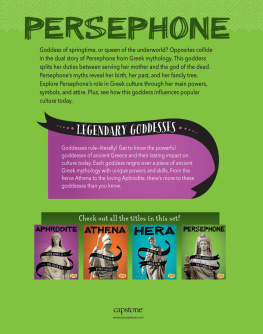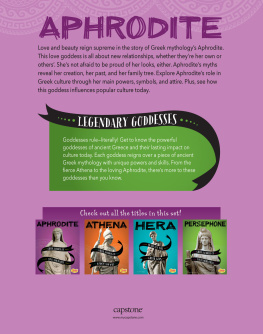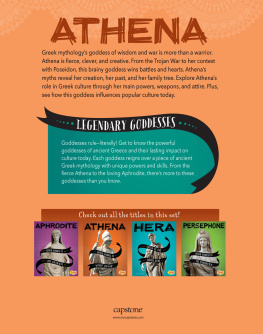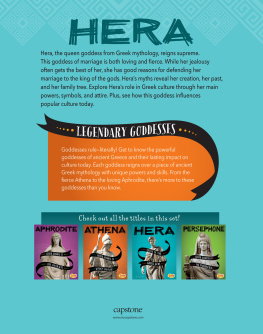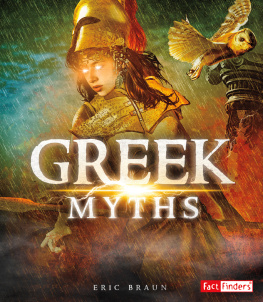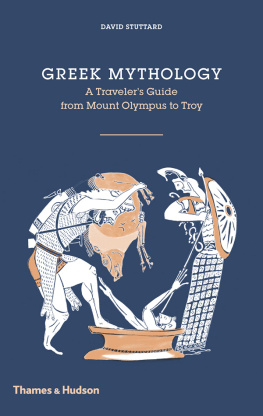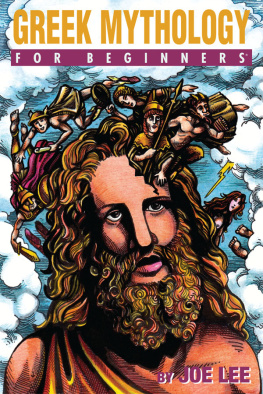Persephone was the beautiful goddess of spring growth and of the sprouting of seeds.
Persephone was the Greek goddess of the spring. One of the main myths about Persephone tells the story of how she became queen of the .
Cotton clouds clung to the Hades, stormed into the room.
Zeus, I need to speak with you, Hades bellowed. The god who ruled in the underworld bowed at Zeuss feet. I have come to ask for your daughter Persephones hand in marriage, he continued. I have been watching her as she picks flowers in the fields. I know she will make me very happy.
Have you spoken to her about this? Zeus asked.
No. I knew Demeter would never allow me to marry her daughter, Hades explained.
Well, Persephone is my daughter too, said Zeus. And I am the king of the gods. Persephone could find no better match than to marry my brother. You have my permission.
Hades dark appearance lit up in a fiery glow. I must hurry to make my plans, he said, as he rushed out of the palace.
Goddess Fact
The earliest, lengthy version of Persephones story that still exists is the Hymn to Demeter. It was a poem written sometime around 650 BC.
At the base of Mount Olympus, Persephone and her mother, Demeter, walked through the golden fields. They often visited the farmers of ancient Greece and helped them with their crops. This was their most important job. They knew that the farmers needed a productive harvest. Otherwise they would have little to sacrifice to the Olympic pantheon. Small sacrifices always angered Zeus and the other gods. To keep the peace, Demeter, goddess of agriculture, and Persephone, goddess of springtime, made sure the crops were always good and plentiful.
Mother, I want to pick some flowers for you, Persephone said as they walked through a field of creamy .
You may pick the flowers, my daughter, Demeter gave her permission. I will be nearby with the farmers.
Persephone soaked in the sunshine as she picked her bouquet. She was nearly finished when she suddenly heard a terrible rumbling sound from deep within the earth. Just steps in front of her, the earth cracked open like a bursting volcano. Out of the dark gap rushed Hades. He was on his golden pulled by a team of ebony black horses. Before Persephone could catch her breath, Hades had her locked in his grip. He whisked her away into the darkness below.
Mother! Persephone shrieked as the earth sealed tightly over them.
Demeter dropped the stalk of grain she was checking and rushed toward her daughters cries. Yet, all she found was the bouquet of narcissus scattered on the ground. Persephones footprints were still fresh in the soft soil.
Persephone! Demeter wailed. Her voice vibrated every blade of grass on earth.
But there was no reply. Demeter hunted the planet. She turned up every rock. She looked behind every tree. She invaded every mountain cave. But it was of no use. Persephone was nowhere to be found.
Hades steals Persephone away on his chariot to the underworld. In the oldest myths, this event happened near Athens.
The months dragged on and the earth began to suffer. Through her grief, Demeter no longer helped the farmers with their crops. Her Persephone was gone. Demeter no longer cared about anything. There was no life for her without Persephone.
Demeter mourns the loss of her daughter, Persephone. Meanwhile, nothing grew for the people on earth to eat.
Zeus knew he had to take action or the entire earth would be destroyed. He sent his son Hermes into the underworld with his winged sandals to retrieve Persephone. Zeus ordered that the deal with Hades had to be off. No marriage was worth the earths destruction.
When Hermes arrived in the dark caverns of the underworld, though, he discovered he was too late. Persephone had fallen in love with Hades after she had eaten some of Hades pomegranate seeds.
Because she has dined in the underworld, Hades defiantly explained, she can never return to earth. That is the law of the gods. Hermes relayed the message to Zeus.
Some rules are made to be broken! Zeus shouted at Hades from the top of Mount Olympus. In his anger, the king of the gods sent lightning bolts sizzling across the sky. You may have her for one part of the year, Hades. But during the rest of the year, she must return to her mother on earth.
Persephone felt happy about this agreement. She did love Hades. But she loved her mother too. Now, she would get to be the goddess of springtime and help save the earth. And shed also get to sit on the throne next to her husband and reign as the queen of the underworld.
Demeter was overjoyed when Persephone returned. The earth turned green again. Flowers sprang up wherever Persephone stepped. The crops in the field were plentiful, just as they had always been before. When the harvest was over, Demeter cried again when Persephone had to leave. The plants dried up. The fruit withered. And the earth went silent for the winter. But then in the spring every year, the cycle repeated when all came to life once again when Persephone reunited with her adoring mother.
Persephone returns to her mother, Demeter, from the underworld.
Explaining Natural Events
The ancient Greeks werent the only people to invent myths to explain natural events. Many ancient cultures did the same. Back in ancient times, people didnt have todays scientific evidence and theories to explain such things as night and day, the change of seasons, the tides, the constellations, and moon phases. So making up stories about gods and goddesses or animal characters was one way they could make sense of what they saw in the world around them.
According to Native American Cherokee legends, the seasons changed every year because a nature god cursed the leafy trees that refused to help a wounded bird. In ancient China, people believed that the earth had four seasons because a fire breathing dragon in a mountain warmed and cooled the air. And in South America, the people believed that a cloud god decided to form the seasons as a way to end a quarrel between the animals.
Chapter 2
A PRINCESS IS BORN
The ancient Greeks worshipped many gods and goddesses. They made up stories, or myths, that explained how the deities came to be and how they impacted life on earth. At first, the Greeks worshipped the Titans. But then the Titans lost a mythical battle to their children, the Olympians. After the Olympic pantheon seized control, the ancient Greeks started worshipping these new gods. The great Olympian god Zeus was the new supreme ruler. In this role, he was the king of the gods.

